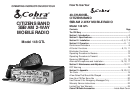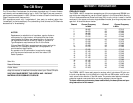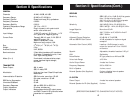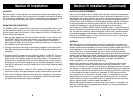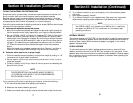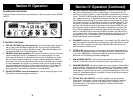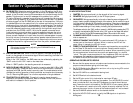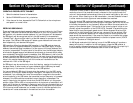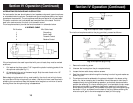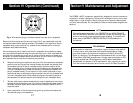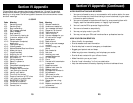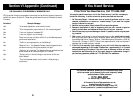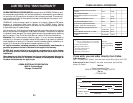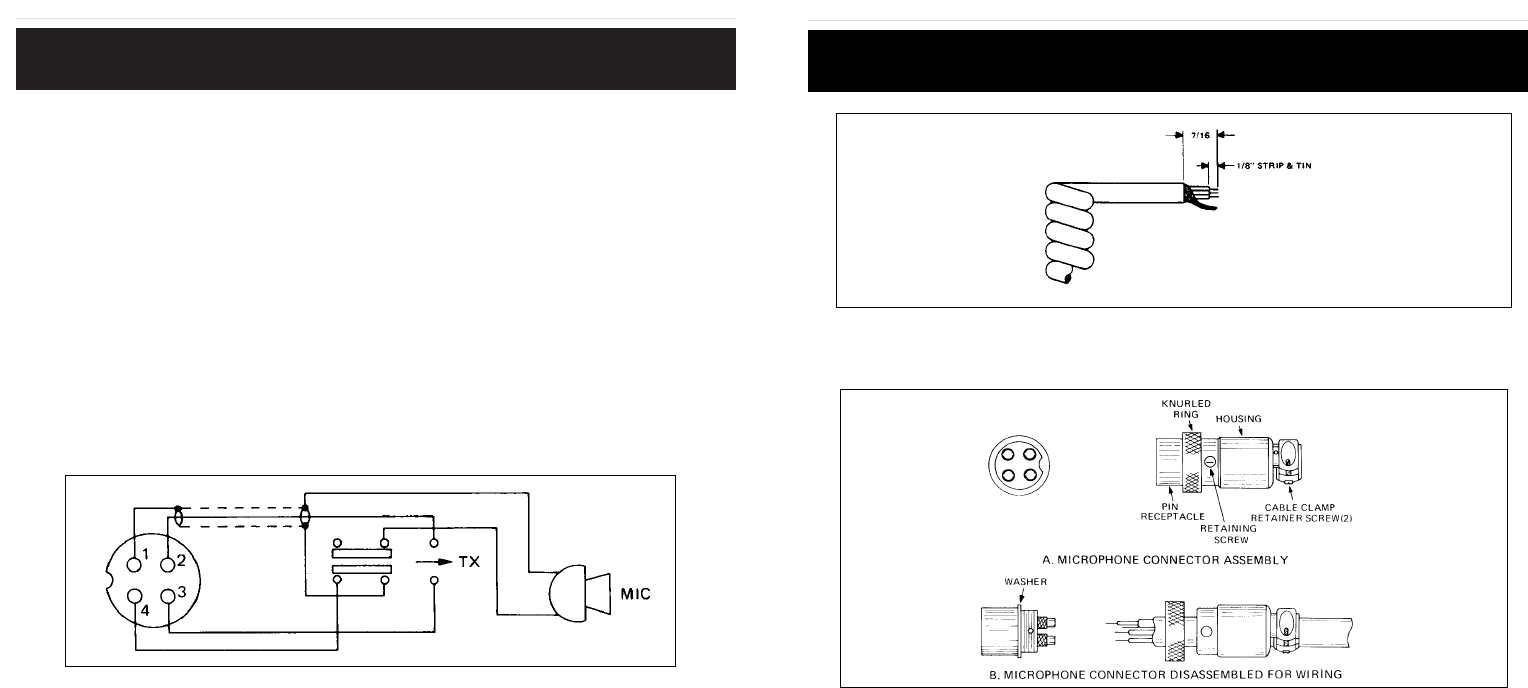
Section IV Operation (Continued)
Fig. 2. Microphone Cable Preparation
To wire the microphone cable to the plug provided, proceed as follows.
Fig. 3. Microphone plug wiring.
1. Remove the retaining screw.
2. Unscrew the housing from the pin receptacle body.
3. Loosen the two cable clamp retainer screws.
4. Feed the microphone cable through the housing, knurled ring and washer as
shown Fig. 3B.
5. The wires must now be soldered to the pins as indicated in the above wiring
tables. If a vise or clamping tool is available it should be used to hold the pin
receptacle body during the soldering operation, so that both hands are free to
perform the soldering. If a vise or clamping tool is not available, the pin recep-
tacle body can be held in a stationary position by inserting it into the micro-
phone jack on the front panel. The numbers of the pins of the microphone plug
are shown in Fig 4, as viewed from the back of the plug. Before soldering the
wire to the pins, pre-tin the wire receptacle of each pin of the plug.
16
3
4
2
1
Section IV Operation (Continued)
ALTERNATE MICROPHONES AND INSTALLATION
For best results, the user should select a low-impedance dynamic type microphone
or a transistorized microphone. Transistorized type microphones have a low output
impedance characteristic. The microphones must be provided with a 4-lead cable.
The audio conductor and its shielded lead comprise two of the leads. The third
lead is for receive control, the forth is for transmit control.
The microphone should provide the functions shown in schematic below.
4 WIRE MIC CABLE
Pin Number Mic Cable Lead
1 Grounding
2 Audio Lead
3 Transmit Control
4 Receive Control
Fig. 1. Cobra 148GTL microphone schematic.
If the microphone to be used is provided with pre-cut leads, they must be revised
as follows.
1. Cut leads so that they extend 7/16” beyond the plastic insulating jacket of the
microphone cable (see Fig. 2.)
2. All leads should be cut to the same length. Strip the ends of each wire 1/8”
and tin the exposed wire.
Before beginning the actual wiring, read carefully, the circuit and wiring informa-
tion provided with the microphone you select. Use the minimum head required in
soldering the connections. Keep the exposed wire lengths to a minimum to avoid
shorting when the microphone plug is reassembled.
15



